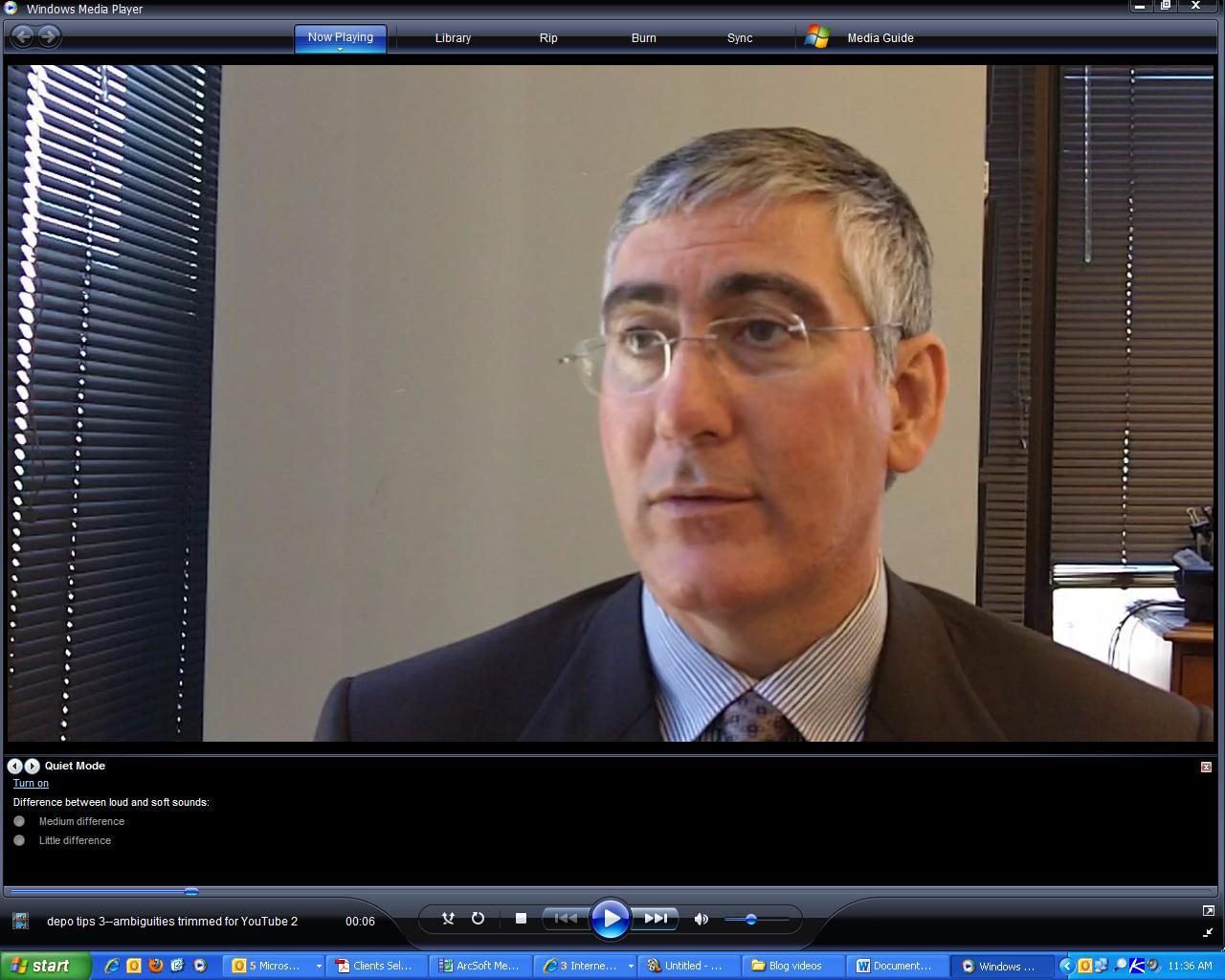When I’m preparing an executive for a deposition, I have to remind him or her that even though the deposition may be held in a run-of-the-mill conference room, it may as well be in a courtroom because what’s said there has the same weight as testimony before a judge.
And that’s just the beginning of the differences between a deposition and a conversation.

VIDEO: Executive Employment Attorney Joe Ahmad discusses the role that ambiguous words play in executive depositions.
When you’re having a conversation, unless you have particularly difficult friends, the other person isn’t trying to get ammunition against you. But that’s precisely what’s happening in a deposition. The lawyer who’s questioning you wants to use your words, either against you or against whatever side you’re on.
The lawyer will use all the ambiguities in the English language, as well. Even words like “meeting” or “document” can be ambiguous. Is an informal chat in the hallway a “meeting”? Is an email a “document”?
Another thing that frequently happens in depositions is that those being deposed claim that the lawyer doing the questioning is “trying to put words in my mouth.” But not even the most skilled ventriloquist can do that. If you remember nothing else, remember this: the witness controls the answer. And nobody can use your testimony against you without using both the question and the answer.
What lawyers will often do in a deposition is try to get you to agree to their interpretation of what you’re saying. But that’s a very simple move to combat. Here’s how:
Lawyer: “So, what you’re saying is ABC?”
Witness: “I wouldn’t say that. I would say XYZ.”
Even if XYZ is only slightly different from ABC, if you’re more comfortable with XYZ, then by all means say that and don’t in any way agree with ABC. The deposition may be running long and you may be getting hungry, but those short term concerns pale in comparison to your words being used against you at trial.
Simply put, be careful about allowing the other side to characterize what happens. Often times it helps to put it in your own words. After all, the lawyer on the other side has a motivation to put it in the worst possible way. And even if the lawyer is being completely innocent, you have the personal knowledge and you take the oath; the lawyer doesn’t.
You may hear your lawyer tell you not to use “conclusory phrases.” That just means don’t make a conclusion in your statement. Instead of saying “we had a meeting,” say “he came by my office and we talked for a minute or two.” Instead of saying “we had a deal,” describe the facts that led you to believe you had a deal. It’s a subtle difference, but it can be critical in a legal setting.
So when in doubt, rely on the factual.
This is a good time to remind you to control the tempo of your deposition. Even though the lawyer who’s questioning you may be rushing you or using words you wouldn’t choose to characterize your testimony, you don’t have to let that happen. The witness controls the answer and the tempo.
So take that power and use it to your advantage.
